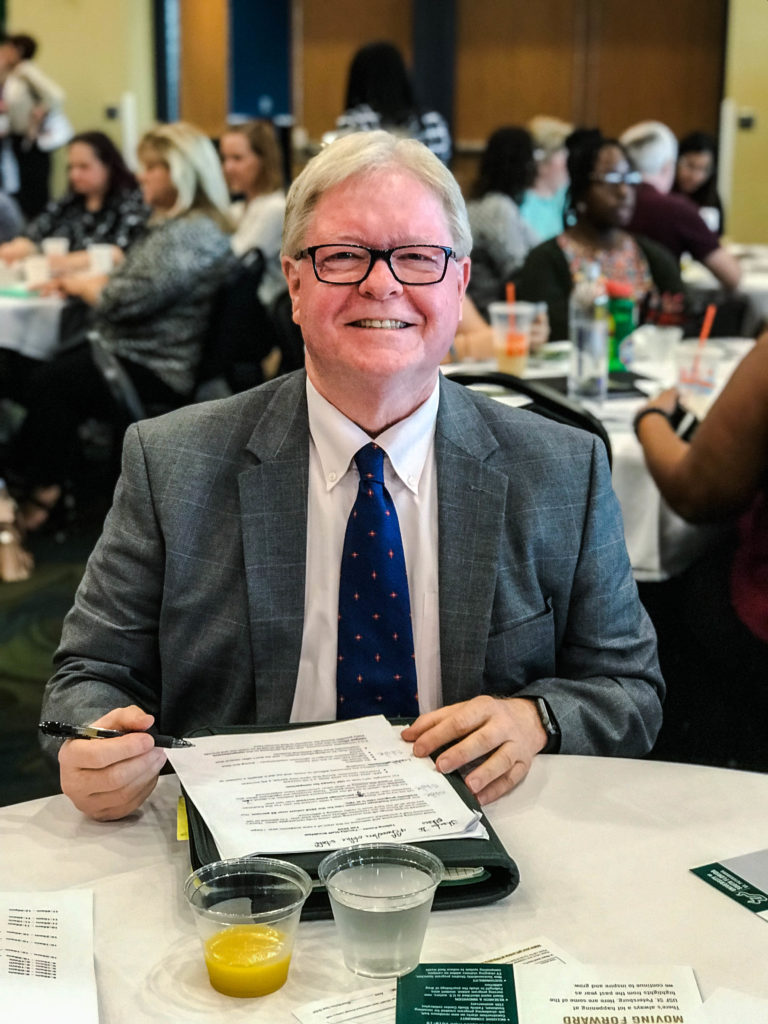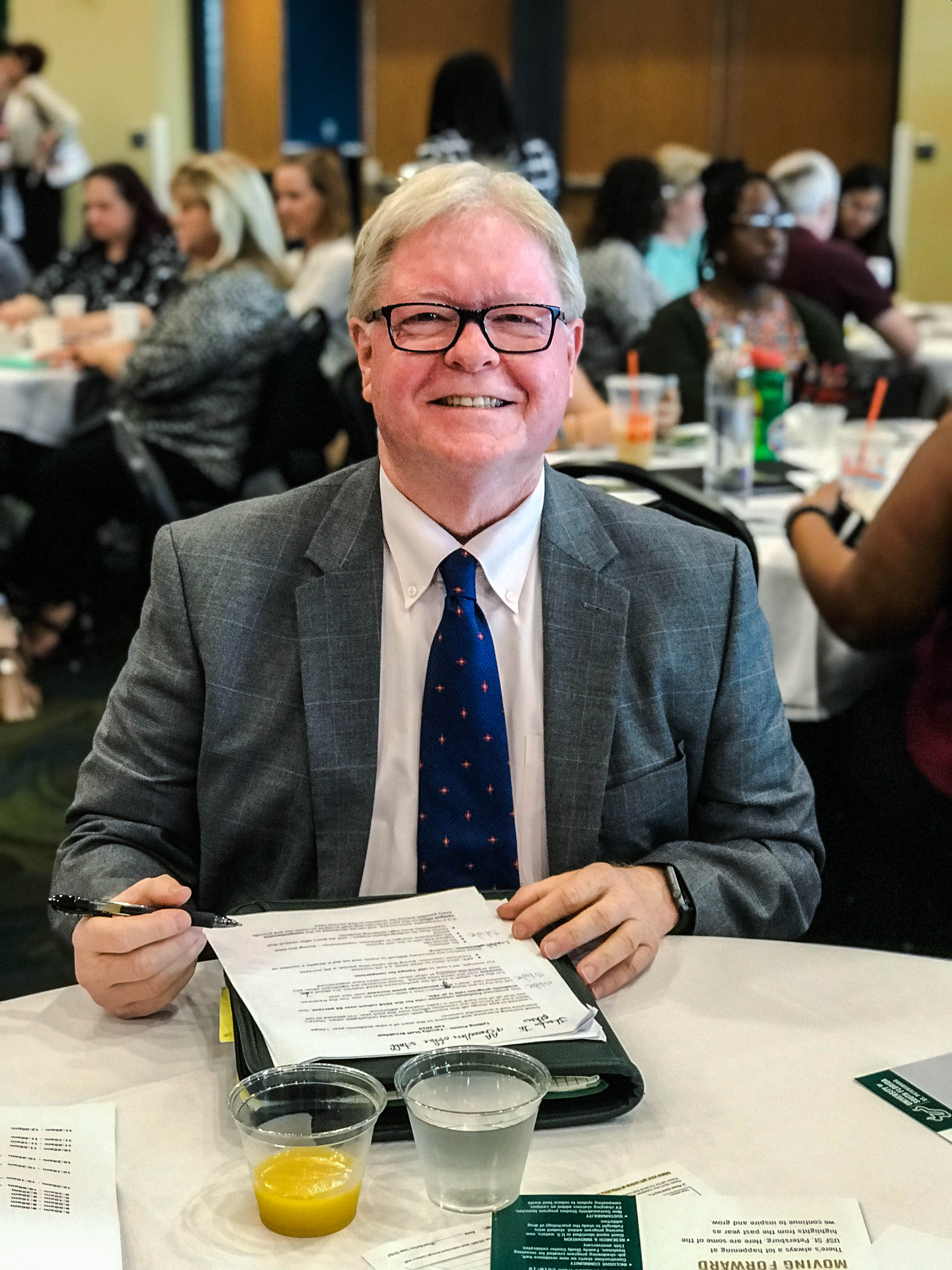
By Nancy McCann
In June, the governor and Legislature put an order into state law:
When the three campuses of the USF system are consolidated in 2020, they declared, St. Petersburg and Sarasota-Manatee will be full branch campuses with authority to shape their budgets, hire faculty and tailor programs for their students.
But over the summer, those branches lost a lot of leaves.
- The search for a regional vice chancellor to oversee academics in St. Petersburg was abruptly terminated.
“We were told not to fill the position because we don’t know what the final organizational chart will be and it’s not wise to invest permanently” in that position, Regional Chancellor Martin Tadlock told faculty on Aug. 19.
- Ralph Wilcox, who as USF system provost was longtime President Judy Genshaft’s strong right arm, was recently awarded a five-year contract to serve new USF system President Steve Currall. His annual salary: $471,203.
Wilcox supported Genshaft’s position that USF St. Petersburg and USF Sarasota-Manatee can be called branch campuses without meeting the exact definition used by the regional accrediting agency.
- The St. Petersburg campus got an increase of $3.5 million in its base budget from the Legislature this year, and Sarasota-Manatee got $5 million. But under a new policy adopted by the USF Board of Trustees on Aug. 19, the money can’t be committed by the campuses without the approval of the USF president.
- Documents that outline a proposed academic structure for the three campuses are confusing and so Tampa-centric that some faculty leaders in St. Petersburg are crying foul.
“There are a lot of alarming things in the (consolidation) documents, and there are a lot of alarming things not in the documents,” said Ray Arsenault, a history professor and president of the USF St. Petersburg Faculty Senate, at the Aug. 19 faculty meeting.
Arsenault has been USF St. Petersburg’s most outspoken champion on consolidation issues.
“There are gaping holes and inconsistencies with the legislation,” and the proposed academic structure of USF St. Petersburg “looks more like an instructional site with the exceptions of business and marine science,” Arsenault said in a follow-up interview.
For the St. Petersburg campus and its allies in the Pinellas County business and political communities, the distinction between a branch campus and an instructional site is crucial.
The Legislature’s definition of “branch campus” matches the definition of the agency that accredits higher education institutions in the South.
As branch campuses, St. Petersburg and Sarasota-Manatee must be permanent in nature and offer courses in educational programs leading to a degree, diploma, certificate or other recognized educational credential.
They also must have their own faculty and administrative or supervisory organization and their own budgetary and hiring authority.
Falling short of these four defining features means that the two smaller USF campuses would be less prestigious instructional sites, which would be inconsistent with the state law that was enacted in June.
“This is more than bureaucratic language,” the Tampa Bay Times said about the legislation in a May 3 editorial. “This is a big win for the St. Petersburg campus, and it should end any lingering efforts to micromanage from the main campus in Tampa.”
Patricia Pettijohn, head of collection development and technical services at the Nelson Poynter Memorial Library and member of the USF System Faculty Council, said in an interview last week that so far, comments from faculty members reviewing the consolidation documents fall mainly in two areas.
“A shared concern is that critical information is missing that makes it impossible for us to make any decision about the proposed structure,” she said. “Mostly what we can do is ask questions.”
Another big issue, she said, is that faculty members do not yet know if they have an assigned campus.
“It’s unknown if you will be a USF or USFSP faculty member,” she said. “All cases roll up to a dean in Tampa, and the way things are looking, department meetings will be in Tampa. Some people are worried about having to do a lot of travel.
“We still don’t know if the College of Marine Science will be located in St. Pete. It’s getting late in the game.”
A consolidation document titled “Alignment of Degree Programs to Colleges” shows that several of USF St. Petersburg’s unique programs appear to be feeding up to schools and departments that are known (but not obviously identified) to be located at the Tampa campus.
For example, St. Petersburg’s journalism, digital communication and media programs are shown as aligned with the Zimmerman School of Advertising and Mass Communication in Tampa.
St. Petersburg’s distinctive conservation biology program is aligned with the Department of Integrative Biology; computational and applied mathematics is with the Department of Mathematics and Statistics.
USF St. Petersburg’s environmental chemistry program, launched this fall, is aligned with the Department of Chemistry; sustainability studies is with the School of Geosciences.
In March, during a St. Petersburg appearance the day before he was named president by the Board of Trustees, Currall said he has seen multi-campus universities “work very well.” He said he was “aware that this campus has its own identity and culture” that should be honored.
But Currall’s decision to end the search at the St. Petersburg campus for a new regional vice chancellor for academic affairs prompted the Times in an Aug. 13 editorial to mention “renewed concerns about micromanaging from Tampa.”
Tadlock’s message to the campus about consolidation emphasized the long game.
“This is a process that will be ongoing for quite some time,” he told faculty at the Aug. 19 meeting. “Keep focused on our students, our community and each other. We know what to do.”



